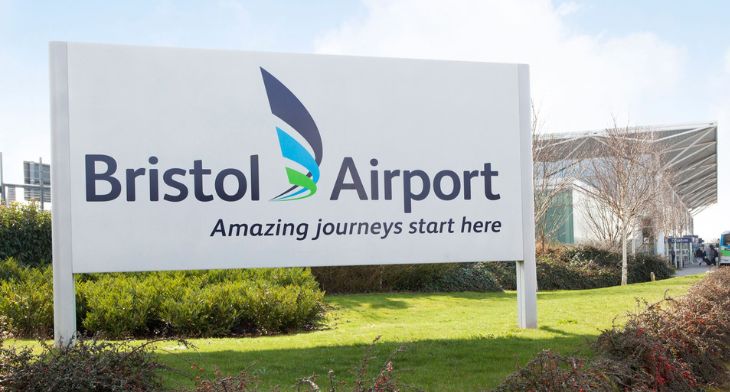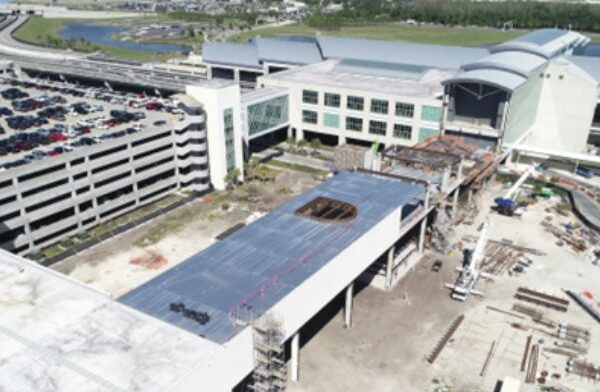


Marking a first of its kind fuelling for a UK airport, hydrogen has been used in a trial to refuel and power critical parts of easyJet’s ground operation at Bristol Airport.
Hydrogen was used to refuel and power ground support equipment (GSE), specifically baggage tractors, servicing easyJet passenger aircraft. The trial demonstrated that the gas can be used safely and reliably to refuel GSE in a busy, live airport environment. The UK Civil Aviation Authority (CAA) played also played an active role in the trial as an independent reviewer of the safety case.
Dubbed Project Acorn, the trial was in development for more than a year and involved other stakeholders from across the sector, including Cranfield Aerospace Solutions, Connected Places Catapult (CPC), DHL Supply Chain, Mulag and TCR. The group intends to use learnings from the trial to help develop industry best practices, provide guidance to other airports and airlines and support the development of a regulatory framework for hydrogen’s use on an airfield.
David Morgan COO at easyJet commented: “It is without doubt that hydrogen will be an important fuel of the future for short-haul aviation, as demonstrated by the rate of innovation we’re seeing.
“While the technology is advancing at pace, as hydrogen isn’t used in commercial aviation today, there is currently no regulatory guidance in place on how it can and should be used, and so trials like this are very important in building the safety case and providing critical data and insight to inform the development of the industry’s first regulatory framework. This will ensure regulation not only keeps pace with innovation, but importantly also supports the industry in meeting its decarbonisation targets by 2050.”
Project Acorn is designed to be a first step on the journey to ensuring the UK’s aviation industry is ready to develop the ground infrastructure, safety standards and operational procedures required to make the sector hydrogen-ready. The safety assessments and emergency planning with local authorities that serve Bristol Airport will also provide invaluable learnings for future developments and serve as a blueprint for other local authorities.
One of the shorter-term objectives of the project is to lead to the long-term or permanent deployment of hydrogen GSE at Bristol Airport and ready the air transport hub for trials and then commercial operations of hydrogen-fuelled aircraft.
In terms of storing and distributing the hydrogen, the process works by a hyQube hydrogen refueller pumping hydrogen from H2 cylinders into the empty tanks of the baggage tractor. Hydrogen is dispensed through the hyQube, using an attached nozzle just like refuelling a car at the petrol station, into the tanks onboard the Mulag baggage tractor with just the press of a button. Once the tanks reach the full pressure of 350bar the hyQube automatically shuts off, the operator disconnects and the vehicle is ready to go. The whole process takes approximately three minutes to fill up a full tank on the baggage tractor, which will keep it running for two to three hours. The GH” baggage tractor (manufactured by Mulag and fitted with a Globe FC proton-exchnage membrane fuel cell, was refuelled by trained DHL personnel via the mobile refueller at Bristol. DHL’s personnel operated the GH2 baggage tractor to service easyJet aircraft turnarounds at a remote stand at Bristol Airport, which towed passenger luggage from easyJet passenger aircraft to and from the plane and airport as part of a normal operation.





